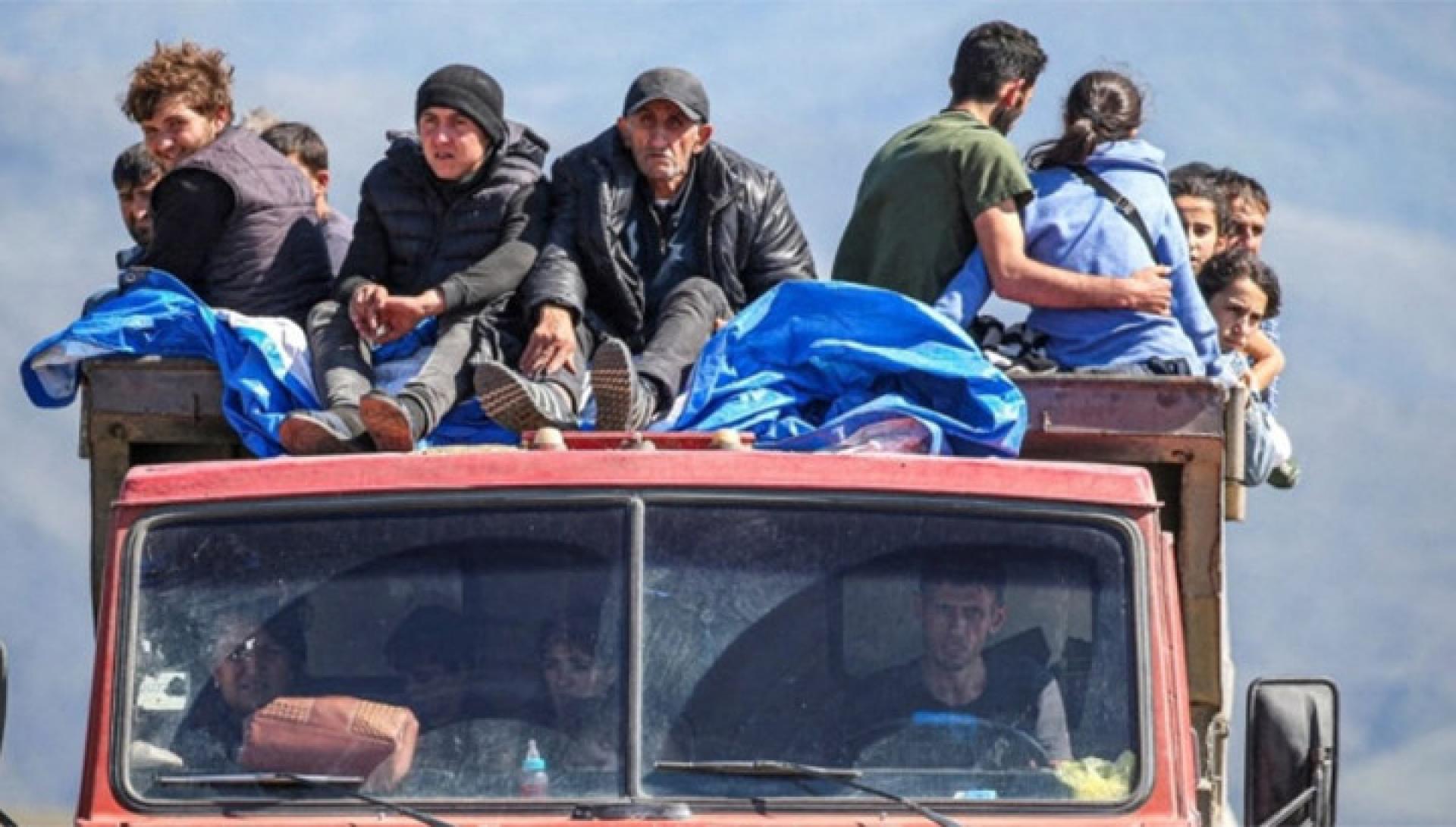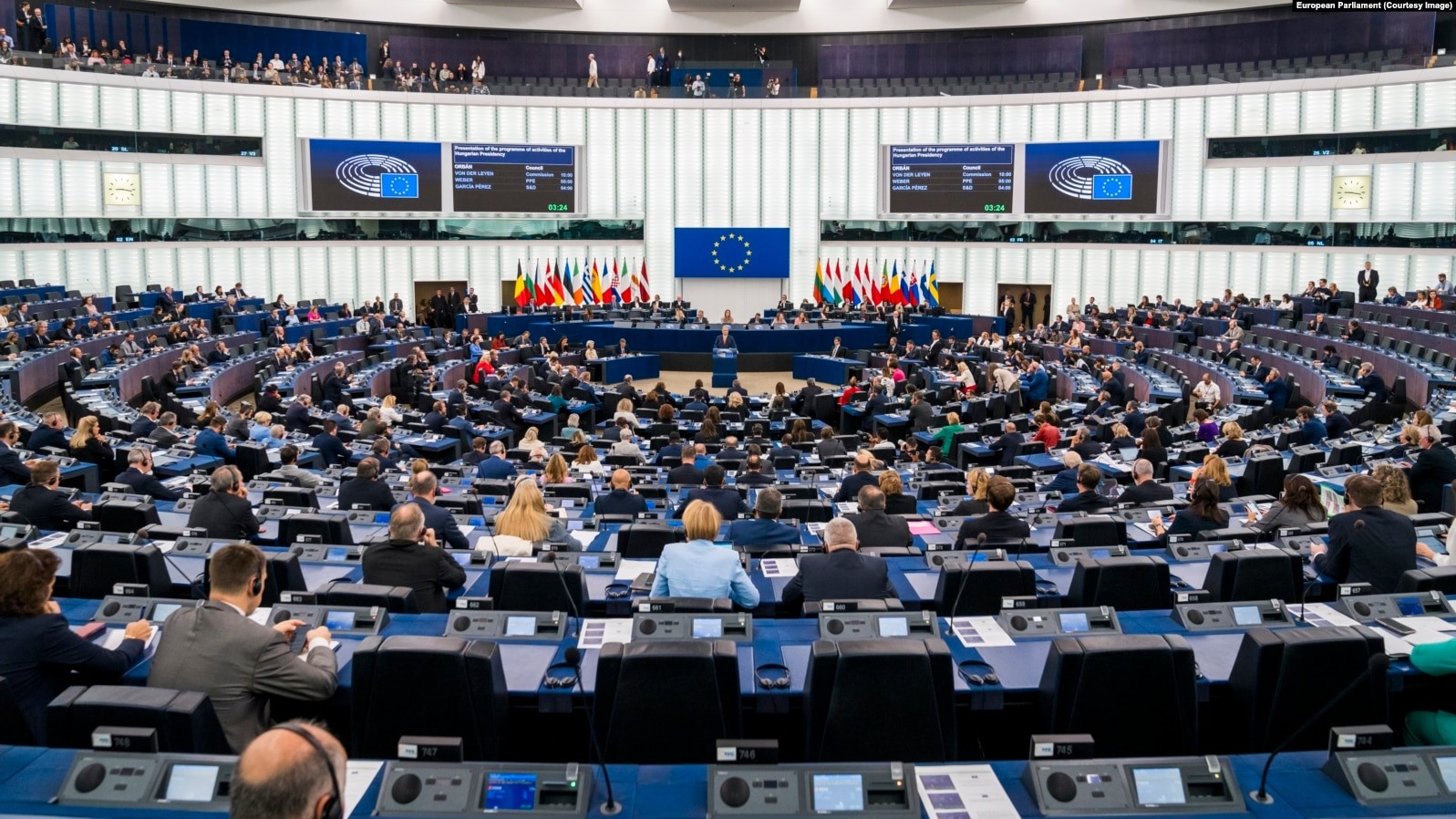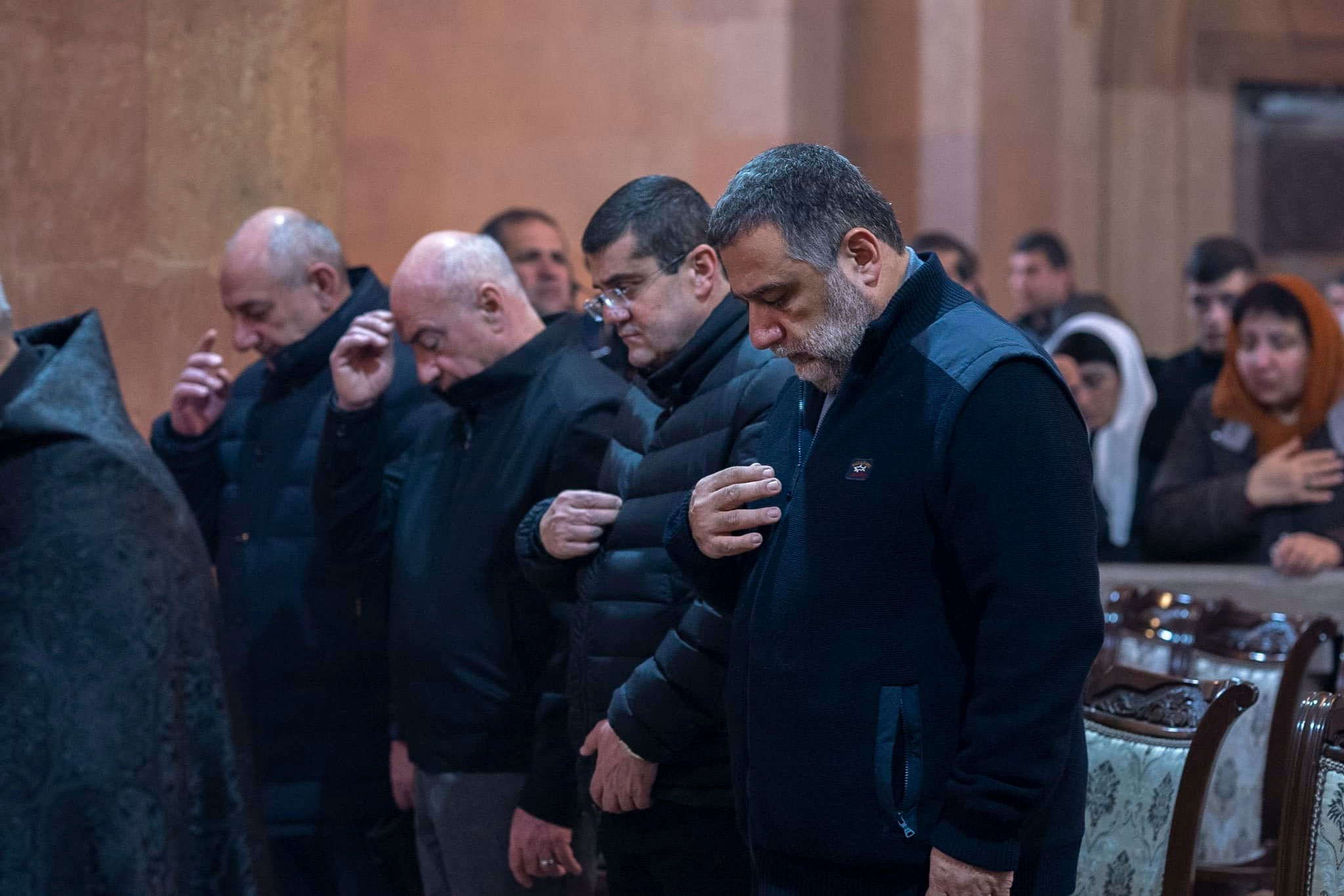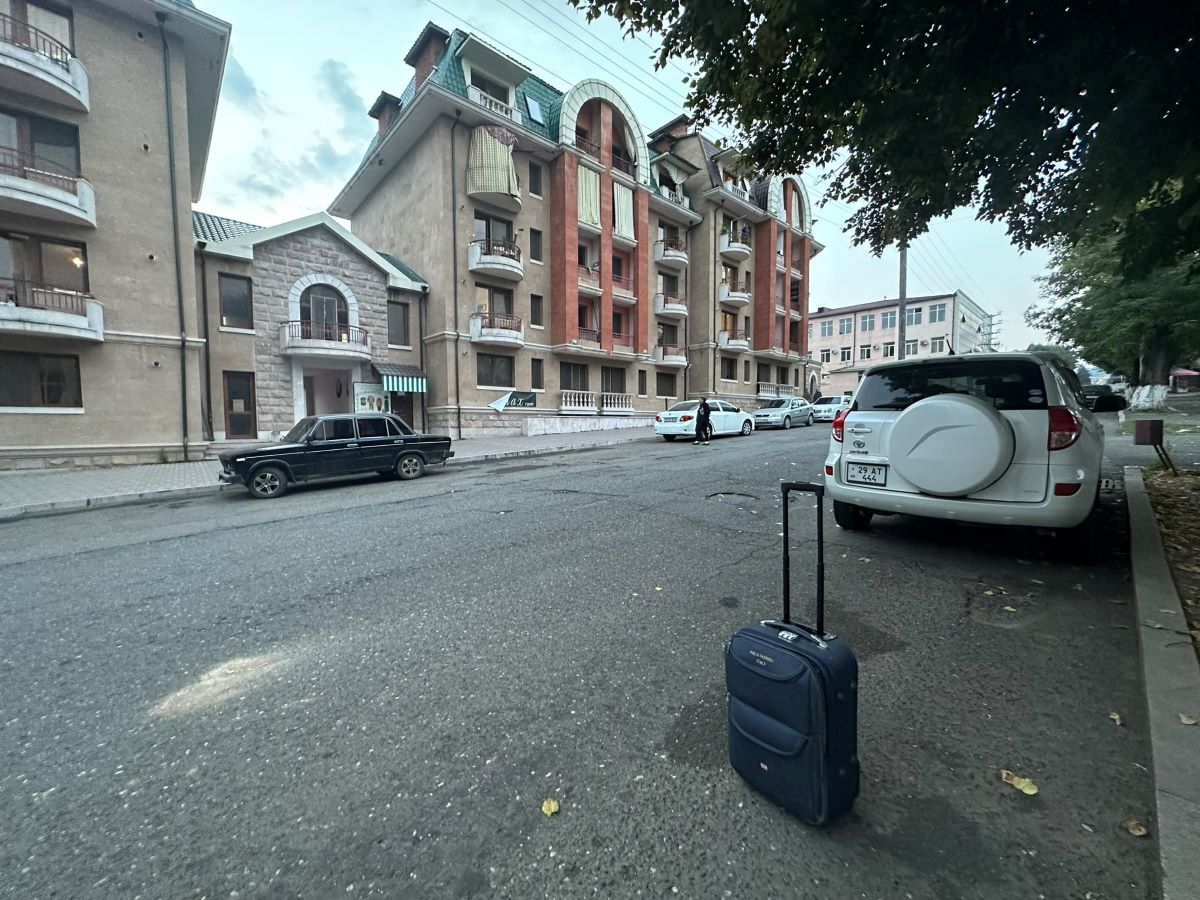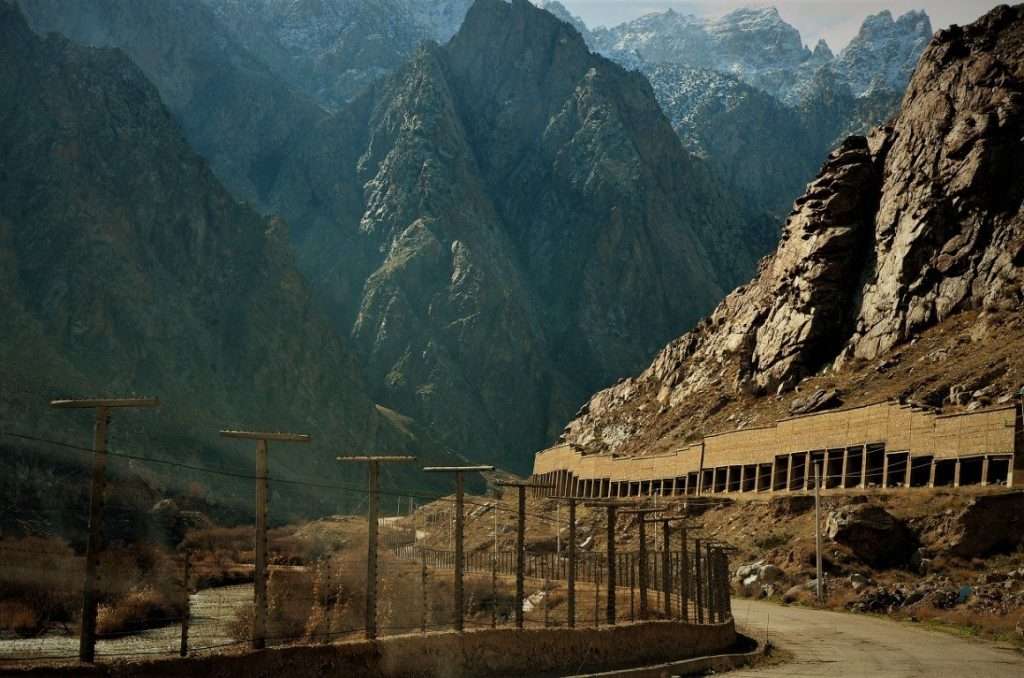Human rights report accuses Azerbaijan of "ethnic cleansing in Nagorno-Karabakh"
Azerbaijan accused of ethnic cleansing Armenians in Karabakh
On November 11, the same day the COP 29 conference began in Baku, several international human rights organizations released a report titled “Why Are There No Armenians in Nagorno-Karabakh?”. The study concluded that the events in Karabakh in September 2023 constituted ethnic cleansing, referencing military actions on September 19-20, which Azerbaijan described as an anti-terrorist operation. Following these actions, all Armenians left their homeland.
The report was produced by six organizations, including Freedom House, the International Partnership for Human Rights (IPHR), and Truth Hounds. They conducted over 300 interviews with Karabakh Armenians now residing in Armenia and utilized open-source information and satellite imagery to document the destruction of Armenian cultural and historical sites.
In an interview with Armenpress, Simon Papuashvili, Program Director of the International Partnership for Human Rights, highlighted the discovery of numerous human rights violations and crimes. He noted that during the 2020 war, instances of extrajudicial executions and torture were documented. Papuashvili mentioned plans to submit the collected evidence to the International Criminal Court to hold Azerbaijani leaders and military personnel individually accountable for their roles in these crimes.
- Yerevan mum on Baku’s leak of unresolved peace terms
- “Armenia isn’t militarizing but raising cost of attacking it”: opinion
- “No peace without pressure on Baku” — political analyst on Pashinyan-Aliyev meeting
Simon Papuashvili’s remarks
“Karabakh Armenians left with no choice but to flee”
“We have documented several systemic and severe human rights violations and international crimes. It’s crucial to highlight that these actions were widespread, systematic, and part of Azerbaijan’s state policy aimed at cleansing the territory of ethnic Armenians.
Our research extended beyond the incidents of September 19 and the subsequent days. We also analyzed how numerous ceasefire violations and incidents in 2020, 2021, and 2022 instilled a persistent sense of vulnerability among the population. For instance, the elements and composition of crimes defined in Article 7 of the Rome Statute of the International Criminal Court are particularly relevant, as they involve creating an environment of coercion.
Based on our evidence and hundreds of interviews with displaced individuals, we determined that people in Nagorno-Karabakh have not felt safe since 2020.
This feeling of vulnerability was compounded by numerous acts of violence that deeply affected their everyday lives, especially during the 10-month blockade preceding the September military operation. From a shortage of medicines to feelings of isolation, all these factors intensified their sense of insecurity.
Therefore, following the military operation on September 19, 2023, ethnic Armenians living in Nagorno-Karabakh essentially had no other option but to flee. We also considered how the displacement process unfolded and its impact on the people.
Our conclusion is clear: we are indeed witnessing ethnic cleansing.”
Who can be held accountable, and how
“There are several legal instruments and mechanisms available, one of which is the European Court of Human Rights. Some qualified Armenian organizations are actively working in this area independently, and the Armenian government has also brought a case against Azerbaijan in the European Court.
Our organization, however, is placing greater emphasis on individual criminal responsibility, which can be pursued through cases in the International Criminal Court (ICC).
In this regard, we are exploring the opportunities opened to us now that Armenia has ratified the Rome Statute.
We are currently preparing materials for the ICC, including evidence of numerous ceasefire violations and related war crimes committed by Azerbaijan within Armenian territory. Naturally, we will also focus on the forced displacement, or ethnic cleansing, that followed the events of September 19, 2023.
Our aim is to demonstrate to the ICC prosecutor that the crimes we have documented fall within the court’s jurisdiction and that investigating them serves the interests of justice.
Additionally, we are engaging with countries that are parties to the Rome Statute, encouraging them to initiate cases on these crimes in the ICC.
For instance, over 40 countries took this approach in early 2022, when Russia launched a full-scale war against Ukraine. Similarly, our case may gain the support of one or more countries committed to advancing justice and combating impunity.”
European Parliament resolution on Azerbaijan-Armenia relations
“Another approach we are considering is the use of ‘universal jurisdiction’ proceedings. This legal concept allows a country to prosecute an individual regardless of their nationality or where the crime took place. It applies to war crimes, genocide, torture, and enforced disappearances.
Most European countries have the capacity, under their criminal laws, to investigate events that occurred in Karabakh.
We are gathering additional evidence on individuals who may have been involved in the acts we are investigating, with the intention of initiating cases against them across various European countries.
Among these individuals are the leader of Azerbaijan and other high-ranking officials linked to the crimes we are investigating.
A third legal mechanism is targeted sanctions. In the US, this could involve the Global Magnitsky Act; in the EU, the global human rights sanctions regime; and in the UK, its own sanctions framework. Once we have completed our evidence collection, we will urge these and other nations or unions to impose sanctions on the perpetrators we have identified.”
No “bulletproof” solutions
“Imagine we succeed with a universal jurisdiction case in a European country against high-ranking Azerbaijani officials. In an ideal scenario, this would prevent them from traveling to Europe, where they would face arrest. In many European countries, trials can proceed even in the absence of the defendants, allowing these individuals to be held accountable without needing to appear in court.
If charges are brought, we could then target their assets held in the West rather than in Azerbaijan. Their property could be seized and redirected as compensation to victims.
The same applies to the International Criminal Court, which can prosecute heads of state and issue arrest warrants, as it did with Putin. Putin is now effectively barred from Europe, as he would be arrested if he set foot there.
These strategies aren’t impenetrable or foolproof, but they are legal tools that can increase the consequences for authoritarian leaders like Aliyev.”
Legal tools also influenced by political interests
“Europe and the US responded swiftly to Russia’s full-scale war against Ukraine because they faced a direct threat. They recognized that if they didn’t curtail Russia’s capacity for war, they might become its next target.
Azerbaijan, however, is not seen as a threat by European countries or the US, which is why there is less political will to confront it.
In our world, principles like human rights, the rule of law, and good governance are often applied selectively, with political security and economic interests taking precedence.
Therefore, it’s important to be realistic about the prospects of imposing sanctions on Azerbaijan.
Legal mechanisms, on the other hand, tend to be more predictable, though not entirely immune to political influence. They offer a viable path to hold human rights violators accountable.”
Azerbaijan accused of ethnic cleansing










